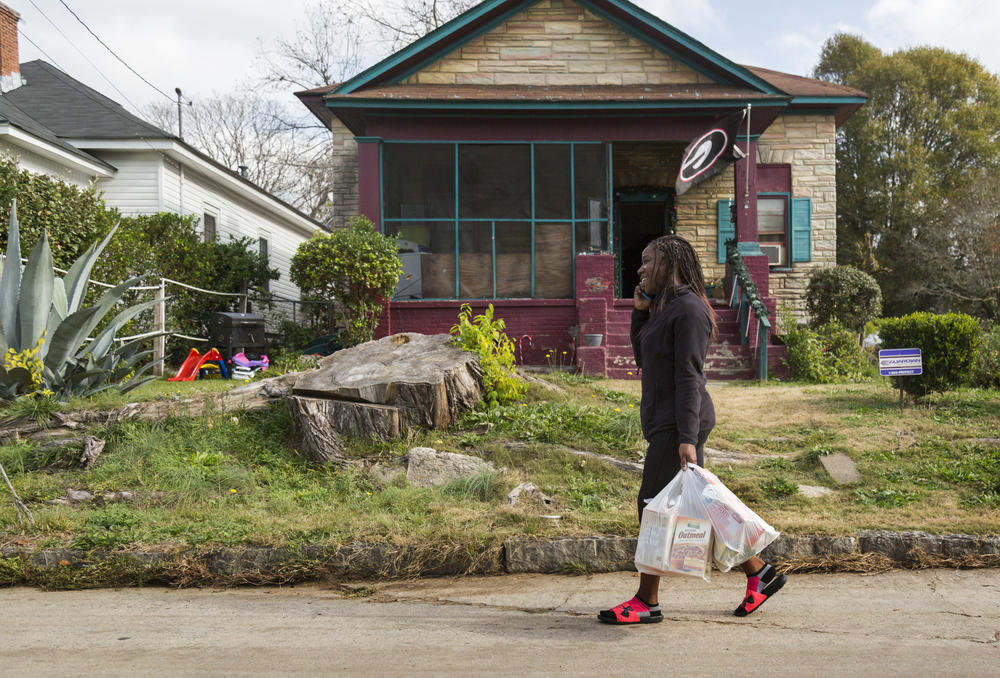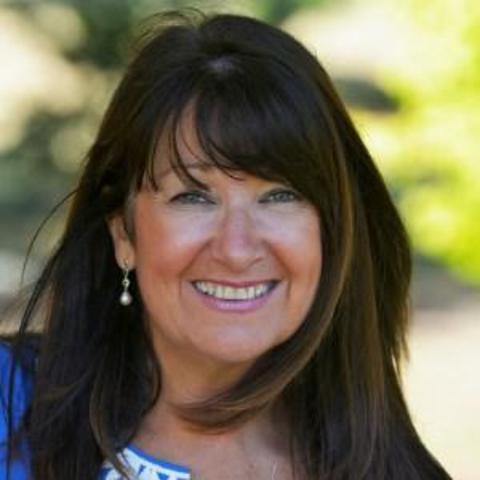Section Branding
Header Content
Macon Gets Georgia's First Urban Agrihood
Primary Content
Phillip Tutt talks about okra and collards with his neighbors. He’s lived in the same home on Macon, Georgia’s Bowden Street for close to 50 years. Most of that time he’s had a garden.
“Now for my turnips and things like that I don’t want to plant them before Labor Day,” he said. “But if I can get them in on Labor Day I’ll be happy. But collards I believe I set them out in August if I’m not mistaken.”
Over the years the rows of vegetables in his garden have thrived while the neighborhood around them has withered. There was a time when he would walk next door to share his peppers with neighbors and return with a basket of tomatoes.
“People were living in all these houses when I moved here. It was a real nice neighborhood,” Tutt said. “But as the people started moving out, the owners started moving out and they started renting it then it just went down.”
Now when you walk down Bowden Street you see many homes that are empty and boarded up. Others are occupied by renters and in various states of disrepair. But a $500,000 grant announced Tuesday could transform this neighborhood by returning it to the land.
Tutt hopes the grant from Art Place will help the neighborhood return to what it used to be. Danny Glover with the non-profit One South Community Development Corporation agrees. That’s one of the reasons he applied for the grant. He grew up a few doors down and moved back here after college. He said the plan is to take seven vacant parcels and convert them to farm space.
“We’ll have row crops all throughout the agrihood. We’re also going build an urban farm center and inside that farm center will be a farm to table restaurant,” he said. “We’ll also have commercial kitchen space for cooking demonstrations, a makers space, and farmers market type space, and also just meeting space for hosting events and receptions and stuff.”
Georgia’s most well-known agrihood is Serenbe, outside Atlanta, where a three bedroom home can go for $700,000. Glover said this is the state’s first urban agrihood. It’s within the city limits and modeled on Michigan’s Urban Farming Initiative.
“They started the whole agrihood process in 2012,” he said. “So I’ve had a chance to meet with Tyson Gersh who is the executive director of that group and we’re working on establishing a sister cities type partnership between Detroit in the north and Macon in the south.”
Neighborhood revitalization isn’t the only goal. Lacey Resch is with Community Health Works, a local non-profit focused on improving people’s health in Middle Georgia. She said the neighborhood is in a so-called food desert.
“You have a lot of corner stores that sell processed food, no healthy produce, no fresh produce at all,” she said. “Transportation is usually really limited so it’s really difficult for people to get to a grocery store.”
That lack of access to healthy foods can lead to diabetes, high blood pressure and high cholesterol. Resch said gardens are also a great way to build community, as older residents pass on knowledge and a passion for planting things.
“It can just be a huge boon for any type of neighborhood like this,” she said. “You can get kids involved. Folks can grow enough stuff to put up at home to eat at home maybe to sell. So there’s a lot of opportunities.”
Danny Glover hopes those opportunities will make it an attractive place to live for millennials like him.
“We’re hoping that as we create newer hip neighborhoods like this that more young people will see the investment and see something happening and don’t feel like they have to escape the city to do so,” he said.
But there’s the risk that if the neighborhood becomes more attractive, gentrification and rising property values could push out long-time residents. To avoid that organizers plan to establish a non-profit community land trust that would, among other things, limit how much houses on Bowden Street could sell for.


